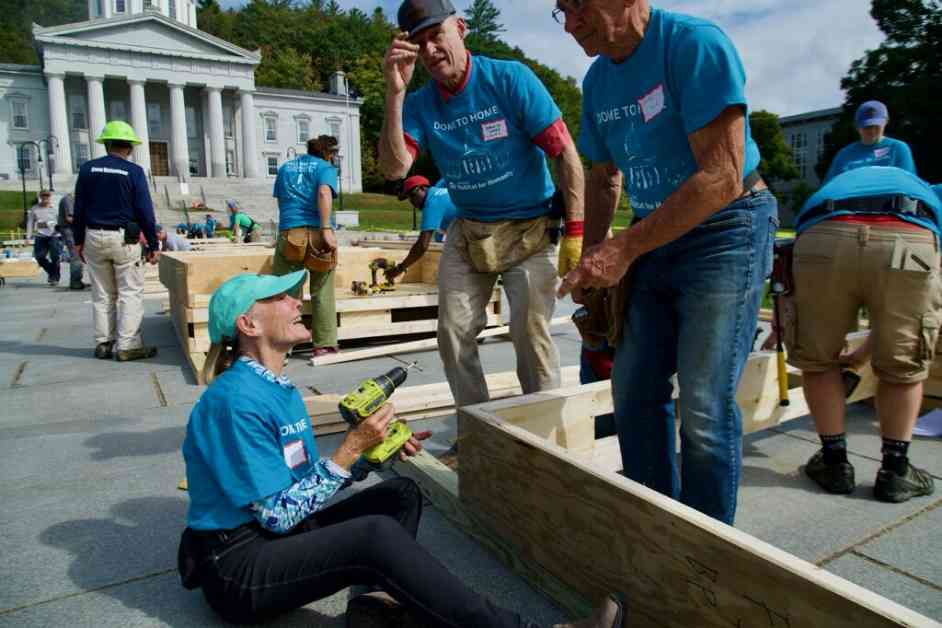Affordable Housing Solutions in Montpelier
Central Vermont Habitat for Humanity is making significant strides in addressing the housing crisis in the region. What started as an organization building one unit every other year with minimal staffing has now evolved into a powerhouse constructing two units annually with a team of seven full-time employees. This growth can be attributed to the strategic planning implemented by the board in response to the worsening housing situation in the area. Executive Director Zachariah Watson, along with board president Edward McDonough and dedicated volunteer Glen Seifert, have played pivotal roles in driving this progress.
Expanding Reach and Impact
Habitat for Humanity is a nonprofit organization dedicated to providing affordable housing solutions, serving Orange and Washington counties as well as the towns of Greensboro, Glover, Craftsbury, and Hardwick. While the organization focuses primarily on its affordable homeownership program, it also extends its services to home repairs and disaster relief efforts, such as building ramps or engaging in post-flood carpentry projects.
To qualify for Habitat’s affordable homeownership program, applicants must meet specific income criteria, reside within the organization’s coverage area, and demonstrate a need for improved housing conditions. Selected homeowners are required to complete a minimum of 250 hours of “sweat equity” by volunteering to assist in the construction of their homes. This hands-on involvement not only helps reduce costs but also empowers homeowners to take ownership of their living spaces.
Sustainable Housing Solutions
Upon completion of a Habitat home, the affordability is maintained indefinitely. The organization designs custom mortgages that do not exceed 30% of the homeowner’s income, ensuring long-term financial sustainability. Should a homeowner choose to sell the property, the buyer must also meet the eligibility criteria for an affordable mortgage, preserving the cycle of affordability for future occupants.
In response to the pressing need for more housing solutions, Habitat has expanded its construction efforts by forming partnerships with other local organizations. By collaborating with entities like Downstreet Housing and Community Development and Benson Wood, Habitat has been able to streamline its building processes, reduce construction costs, and accelerate project timelines. The organization has also ventured into constructing duplexes and exploring multi-unit housing options to maximize its impact on the community.
Challenges and Opportunities
Despite its remarkable progress, Habitat faces challenges such as escalating construction costs, a need for more volunteers, and limited homeowner applications. The organization strives to address these obstacles by continuously seeking ways to enhance cost-efficiency, expand its volunteer base, and encourage more eligible individuals to apply for homeownership opportunities. Watson emphasizes the importance of creating diverse housing options to meet the varying needs of the community, from affordable and subsidized housing to rentals and executive residences.
In the midst of Vermont’s housing crisis, Habitat for Humanity plays a crucial role in providing stable and affordable housing solutions that benefit individuals and families across the region. By building starter homes for low-income individuals, the organization not only addresses immediate housing needs but also contributes to alleviating the overall housing shortage. Through their efforts, Habitat empowers individuals to transition from subsidized rentals to homeownership, fostering a positive ripple effect in the community.
As Central Vermont Habitat for Humanity continues to expand its reach and impact, the organization remains committed to its mission of building a better future through affordable housing solutions. By working collaboratively with partners, engaging volunteers, and empowering homeowners, Habitat is making a tangible difference in the lives of those affected by the housing crisis.



















